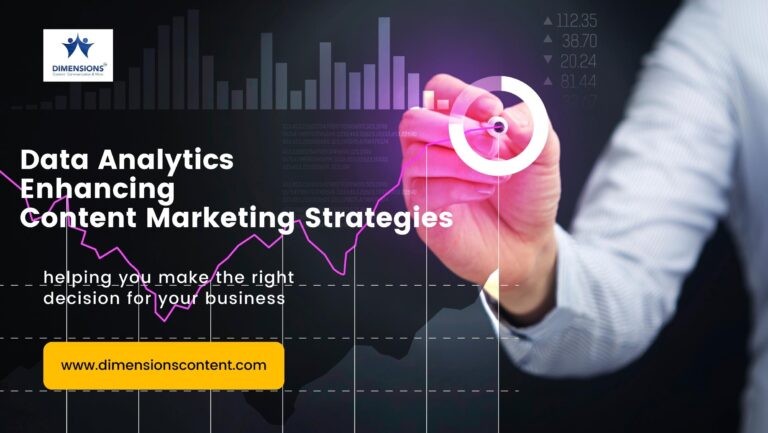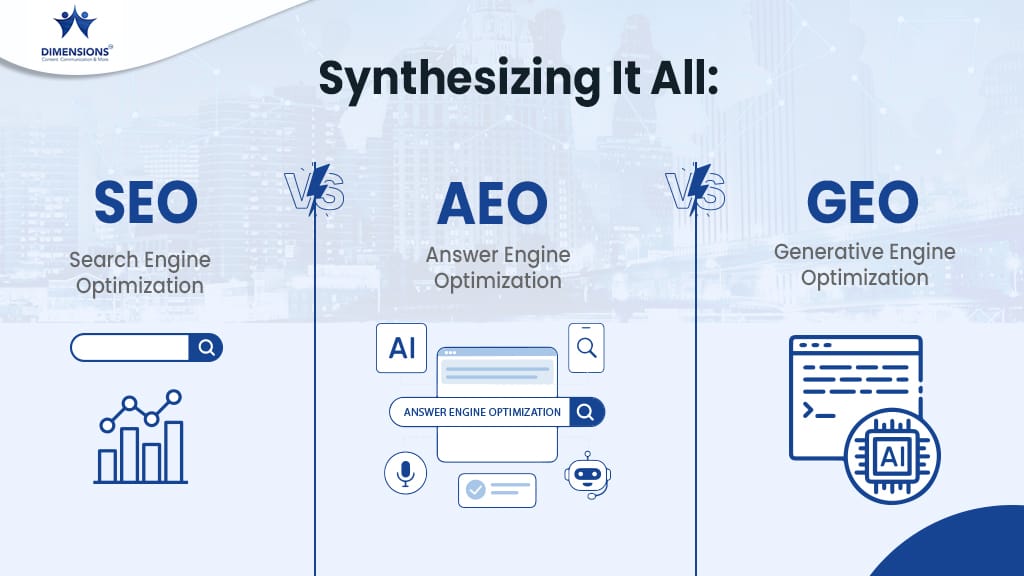How Can Data Analytics Enhance Content Marketing Strategies
What is the most important and sceptical thought that crosses your mind while planning content marketing strategies for any business?
It is choosing the ‘right strategy.’ Correct? Well, it is not!
The right approach is- eliminating all the ‘wrong strategies’ to save time, effort, and money. But how to do that? – Using Data Analysis.
A well-researched data-driven approach to a content strategy helps companies avoid wasting resources and eliminate guesses to connect with the wrong target audiences in the wrong cases. Without analytics, which is looking at the data to find patterns, correlations, insights, and trends, the data would be a series of ones and zeros.
Organisations can gain from data analytics in several ways, including better customer service, enhanced productivity, more revenue, and a rise in overall competitiveness. An analysis is necessary to understand or draw conclusions from data sets, such as forecasts of upcoming activity or trends.
Both exploratory and confirmatory data analysis can be used in a data analytics process to find patterns and relationships in the data.

Here are five ways in which data analysis can assist your content marketing strategies
- Ensure that the data is accurate
Accurate data is necessary for making effective marketing decisions, as you are probably aware. Your marketing approach could be better if you effectively utilise your data. Working backwards, you should start by determining your Key Performance Indicators (KPIs).
If you need to be made aware of the idea, KPIs are quantifiable metrics showing how well a campaign is doing. Marketing initiatives can be measured using a variety of KPIs, including site visitors, landing page viewers, email collection rates, registrations, and click-to-calls, to name a few. Your KPIs should assist in the accomplishment of any goals you have set.
- Determine who your target audience is and how you will reach them
One of the biggest advantages of having data is knowing who you should target in your marketing initiatives and to whom you should address them. Using statistics, you can find out which parts of your website and marketing initiatives are most popular. It would be best if you ascertained the intent of your target audience before choosing them.
The correct methods to reach your audience can significantly impact your digital marketing efforts because different demographics acquire online marketing content in various ways. Mobile devices have been responsible for 58 per cent of site visitors in recent years. For your content to be optimised to reach your target audience more effectively, it is crucial to understand which devices are best for them.
- Make sure you target the right Keywords.
Based on the volume of information offered, using the Google AdWords Keyword Tool might assist you in selecting viable Keywords. This tool can determine which keywords your competitors are targeting in addition to choosing which ones to bid on and which to ignore.
Integrating these keywords into your website’s content marketing, social media marketing, calls to action, and other digital entities will help you achieve your SEO goals. You should regularly monitor and study the results in addition to bidding on keywords if you want to maximise your strategy.
- Maintain a well-optimised website and campaigns
The results of your campaign can be anticipated using historical data. You can determine what has worked and might not have worked by reviewing the results of your previous campaigns and ad targeting efforts. If, for instance, your Facebook advertisements perform better than your Google ads, it might be smart to give a larger amount of your budget to Facebook.
Additionally, you might modify your marketing strategies to appeal to various segments of your target market. You can target many personas when you optimise a range of goods and services.
- Demonstrating ROI
Stakeholders in marketing want to know if their investment is profitable. You can use data from digital marketing to show how the marketing budget is being used and its effect on profitability.
To calculate the Return on Investment (RoI) for digital marketing- the entire income attributed to Digital Marketing must be divided by the total cost of digital marketing. If you don’t use your data for these essential purposes, gathering information without a purpose is possible. Your marketing initiatives can advance swiftly when you use data appropriately and effectively.
By adopting big data analysis tools to analyse the data contained in data lakes, organisations may make more informed business decisions. This could involve choosing the best time and location to start a marketing campaign or roll out a new product or service. There are many different kinds of analytics, including fundamental corporate intelligence tools and more sophisticated predictive analytics employed by scientific institutions.
You can utilise several marketing analytics tools with customizable metrics, visualisations, dashboards, and connectors to assess the success of your marketing approach.
- Buffer
In Buffer’s content marketing analytics, you can create reports based on the goals you have set. You can add or remove custom metrics regarding the performance of numerous social media accounts. Exporting those reports allows you to share them easily.
- Google Analytics
With Google Analytics, you can understand how your content is performing across multiple platforms using an intuitive interface that is easy to navigate. You can use Google Analytics to measure traffic, navigation, conversions, and organic search results to determine how well your content marketing strategy is performing.
- SimilarWeb
Using SimilarWeb, you can find out how your website compares to industry standards regarding traffic and engagement. The information provided here can be used to determine how the company’s performance compares to the competition’s performance.
- Moz
A Search Engine Optimization (SEO) company such as Moz measures the impact of your content on search engines. Get a better understanding of how your work ranks among others in your industry and which keywords are most effective. Through the use of Moz’s software, you can track your site’s keyword ranking and visibility over time to learn what is performing well and what is not.
- Hotjar
With Hotjar’s real-time videos, you can observe how your visitors navigate your website and how they interact with it. Using this method, you can focus on the content that is grabbing your customers’ attention. Using analytics, you can also track conversions and infer the stage at which a customer might enter or leave the buyer’s journey.
An accurate and thorough image of the most recent consumer behaviour trends, including all subgroups like gender, age, location, etc., may be obtained with the help of data analytics. Thus, marketers can change their approaches to better appeal to each of these demographics. As these capabilities advance, offering each user a unique experience is feasible.
One of the best companies in the industry, Dimensions Content Writing, offers data analytics-backed content marketing services. It enables businesses to manage their marketing tactics by their requirements, which increases their profitability in the long run.





